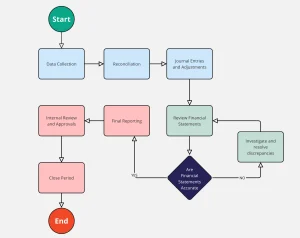
Singapore’s financial sector is currently experiencing a remarkable digital revolution. This transformation is characterised by various noteworthy changes, including the emergence and increasing prominence of robo-advisors and Exchange Traded Funds (ETFs). These technological advancements are revolutionising the country’s passive investing landscape, reshaping traditional investment strategies and approaches.
What factors drive the shift towards a more technologically driven financial industry?
Many factors drive the shift towards a more technologically driven financial industry in Singapore. Firstly, robo-advisors provide investors with efficient and cost-effective ways to manage their portfolios, leveraging sophisticated algorithms and data analytics. It streamlines the investment process and ensures optimal diversification and risk management.
The growing popularity of ETFs has democratised access to various asset classes and investment opportunities. These funds offer investors exposure to diverse sectors, markets, and even commodities, providing a level of flexibility and choice that was previously limited. Moreover, ETFs typically have lower costs than actively managed funds, which makes them an attractive option for investors seeking long-term, low-cost investment solutions.
The rise of robo-advisors and ETFs in Singapore’s financial industry signifies a shift towards a more inclusive and investor-centric landscape. This new era of passive investing caters to the modern investor’s needs and preferences, offering greater accessibility, transparency, and customisation. As technology continues to grow and disrupt traditional financial practices, the potential for further innovations and advancements in the sector is vast.
The digital revolution in Singapore’s financial sector is not just a passing trend but a transformative phenomenon reshaping how investors approach and engage with the market. The rise of robo-advisors and ETFs is the beginning of a more significant paradigm shift towards a more technologically driven and investor-focused financial industry.
The rise of robo-advisors
Robo-advisors are digital platforms that provide automated financial planning services. These platforms have gained popularity owing to their ability to democratise investing. Traditionally, investment advice was reserved for high-net-worth individuals, with limited accessibility to the general public. However, robo-advisors have changed this paradigm by providing low-cost investment solutions that cater to a broader audience.
The increasing prominence of robo-advisors in Singapore’s financial sector can be attributed to various factors. Firstly, they offer investors a more streamlined and convenient way of managing their portfolios. Through sophisticated algorithms and data analytics, robo-advisors can provide personalised investment recommendations tailored to an individual’s risk tolerance, goals, and time horizon. It eliminates the need for human financial advisors, reducing costs and increasing efficiency.
Robo-advisors offer round-the-clock access to investment services, providing investors with greater flexibility and control over their portfolios. It is especially beneficial for younger investors who are more comfortable with technology and prefer a hands-on approach to investing. For example, traders who want to invest in ETFs in Singapore can use robo-advisors to automate their investments, saving time and effort.
The rise of robo-advisors has also prompted traditional financial institutions in Singapore to adapt and incorporate digital solutions into their offerings. This competition drives innovation, developing more advanced and user-friendly robo-advisor platforms that cater to a wide range of investors.
The democratisation of ETFs
ETFs have been gaining popularity in recent years, and this trend is expected to continue in Singapore’s financial sector. These funds are investment vehicles that track an index or basket of assets, providing investors with exposure to diverse markets and sectors. This diversification helps reduce risk and provides long-term growth potential for investors.
ETFs have become increasingly popular in Singapore due to their low-cost and flexible nature. Unlike traditional mutual funds, ETFs are traded on an exchange, making them more accessible and transparent to investors. It allows investors in Singapore to buy and sell shares throughout trading, providing greater liquidity than traditional funds.
ETFs expose investors to asset classes, including equities, bonds, and commodities. This level of diversification was previously only available to high-net-worth individuals or institutional investors. However, with the democratisation of ETFs through robo-advisors and other digital platforms, these investment opportunities are now accessible to a broader audience.
The rise of ETFs has also been fueled by the low-cost environment in Singapore’s financial sector. With the focus on reducing fees and increasing transparency, ETFs have emerged as an attractive option for investors seeking long-term investment solutions that align with their values and beliefs.
The future of passive investing in Singapore
The growing popularity of robo-advisors and ETFs in Singapore’s financial industry highlights a shift towards more inclusive and investor-centric strategies. These technological advancements provide investors with greater accessibility, customisation, and transparency in their investment journey.
As technology continues to grow and disrupt traditional financial practices, the potential for further innovations and advancements in the sector is vast. It will likely include more advanced robo-advisor platforms, incorporating AI and machine learning for more personalised investment recommendations. Moreover, ETFs are expected to continue growing in popularity, providing investors with even more diverse and low-cost investment opportunities.
The future of passive investing in Singapore is bright, with robo-advisors and ETFs leading towards a more inclusive and dynamic financial landscape. As these digital solutions revolutionise traditional investment practices, investors can expect greater accessibility, transparency, and customisation in their investment journey. It will allow more individuals to take control of their finances.
The bottom line
Robo-advisors and ETFs have emerged as game-changers in Singapore’s financial sector, providing investors with a more accessible, transparent, and diversified investment landscape. The rise of these digital solutions has also prompted traditional financial institutions to adapt and innovate, driving even more advancements in the sector. With the future looking bright for passive investing in Singapore, investors can expect a more inclusive and personalised approach to managing their finances.





